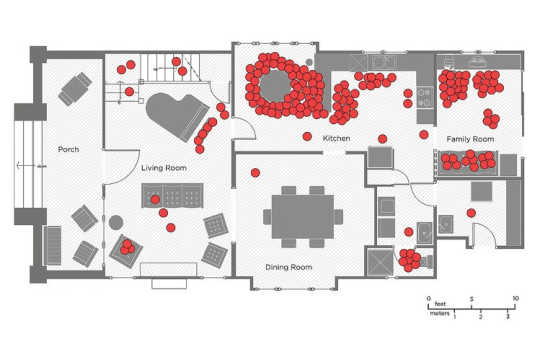5 or 6 of the most interesting things I’ve read in August. Doesn’t necessarily mean that these things were published in August, that’s just when I happened to read them for the first time.
The Missing Middle of Biking
There are short-term bike share and full bike ownership options, but nothing in between to bridge the gap between price accessibility and overall usefulness, especially in smaller places where bike share is harder to come by. Today, I’ll introduce a system of bike rental that could solve this problem.
I’m glad that there are people thinking about this. I’m from a comfortably middle class family, but if I didn’t already have a bike, I would definitely struggle to justify buying one with all my student debt and expenses. I can’t imagine how much worse it could be for those who are actually struggling.
This is going to be a really dorky post, but I’d like talk about why the far right has been able to use memes so effectively while the left has not.
There is a large demographic with a repressed hatred for Muslims, but there is no demographic with a repressed love for Stalin or “socialist states.”
I absolutely love anything that talks about how memes shape political discourse and I feel like there definitely could be more of it, my collection is growing way too slowly. If you see any in the wild please forward it to me thanks!!!!
MELATONIN: MUCH MORE THAN YOU WANTED TO KNOW
What is the right dose of melatonin?
0.3 mg.
“But my local drugstore sells 10 mg pills! When I asked if they had anything lower, they looked through their stockroom and were eventually able to find 3 mg pills! And you’re saying the correct dose is a third of a milligram?!”
Yes. Most existing melatonin tablets are around ten to thirty times the correct dose.
I’ve been using melatonin wrong my entire life. Scott digs through journals and explains the inner workings of the pharmaceutical industry to tell me why. The writer of this blog is not a sleep specialist, but he did go to medical school and is a practising psychiatrist. I would trust his opinion more than I would the average internet blogger when it comes to medical stuff.
If you want to save the world, veganism isn’t the answer
So there’s a huge responsibility here: unless you’re sourcing your vegan products specifically from organic, “no-dig” systems, you are actively participating in the destruction of soil biota, promoting a system that deprives other species, including small mammals, birds and reptiles, of the conditions for life, and significantly contributing to climate change.
Our ecology evolved with large herbivores – with free-roaming herds of aurochs (the ancestral cow), tarpan (the original horse), elk, bear, bison, red deer, roe deer, wild boar and millions of beavers. They are species whose interactions with the environment sustain and promote life. Using herbivores as part of the farming cycle can go a long way towards making agriculture sustainable.
I like this article and I think it says a lot of interesting and true things about how byzantine eating green could be. I’m not sure there’s anything actionable on my end because I don’t live near the farm of the author of this piece. I’m worried that I might like this piece as much as I do because it gives me an excuse to not stop eating meat.
Do Men Enter Bathtubs on Hands and Knees So Their Balls Hit the Water Last?
“I just feel like the balls are basically in the middle of the X, Y, and Z axes of the body and there’s no way to make them go anywhere last. Head, torso, balls, legs. No matter how you dunk a body in water the balls can’t be the last in.”
I don’t remember the last time a piece had me laughing for so long that I almost died of asphyxiation. As soon as you think you familiarised yourself with the style and can handle the rest of the article, the article throws something new at you. Sometimes, that something new is bright green and very dangly. Please read this piece.

